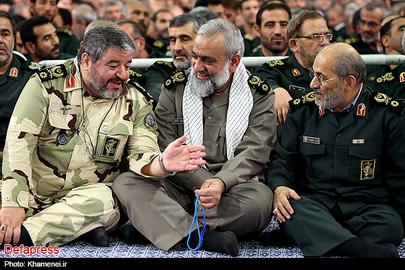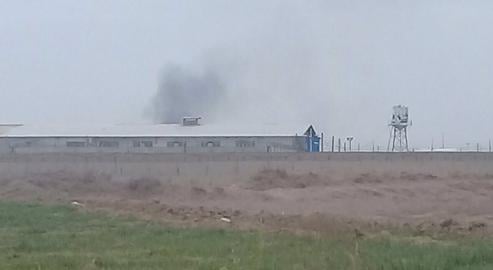When Britain leaves the European Union, it will no longer be bound to carry out EU’s sanctions on Iran. However, the government of the United Kingdom has drawn up its own sanctions against Iran, which will go into effect immediately after Brexit. These UK sanctions will apply to individuals, officials and entities from the Islamic Republic who have been linked to violations against the human rights of Iranian citizens. Of course, such preparations will not be limited to Iran and will affect sanctions for other countries too.
For years now the European Union has imposed sanctions on a number of senior Iranian officials accused of gross violations of human rights. But in early 2012, and following the protests against the disputed 2009 presidential election, these sanctions were expanded and strengthened. In 2012, the EU added a number of high-level military and judiciary officials to its list of sanctions, to which all EU members, including the United Kingdom, had to adhere. The list included, but was not limited to, Major General Mohammad Ali Jafari, Commander-in-Chief of the Revolutionary Guards, Brigadier General Mohammad Reza Naqdi, Deputy Commander of the Revolutionary Guards for Cultural and Social Affairs, Sadegh Larijani, Head of the Iranian Judiciary, Gholamhossein Mohseni Ejei, at the time the judiciary’s spokesman and currently the judiciary’s first deputy, and a number of Revolutionary Court judges, including Abolghasem Salavati and Mohammad Moghiseh.
Since the EU’s sanctions are not part of Britain’s domestic laws, the moment the country leaves the European Union it will be theoretically possible for Sadegh Larijani to travel to the UK or for General Jafari to buy phone surveillance technology from Britain. But as Brexit has drawn closer — currently, the UK is due to leave the European Union on March 29 — the British government has passed separate sanctions against Islamic Republic officials, and these will become part of domestic British law and be linked to UK regulations.
The Sanctions Affect Travel, Properties, Bank Accounts and Asylum Claims
After the sanctions go into effect, Iranians or other individuals related to the Iranian government who are considered to have violated human rights will be added to the UK blacklist. Such individuals will be immediately barred from traveling to Britain and its dominions, will not be able to hold bank accounts or properties in these territories and will not be allowed to ask for asylum. And even if they had owned properties and held bank accounts before being added to the UK sanctions list, these individuals could be blocked from accessing their UK properties, and their accounts could be blocked. The UK Foreign Office has drawn up a detailed list of the sanctions and the British Exchequer and other government agencies are responsible for enforcing them.
The sanctions are based on the British Sanctions and Anti-Money Laundering Act of 2018. The British government has made it clear that its sanctions are designed to apply pressure on the Islamic Republic in order to force it to adhere to international human rights laws and conventions and to respect the basic rights of Iranian citizens and people living in Iran.
After Brexit, these laws and regulations will replace EU sanctions on Iranians accused of serious violations of human rights. The list will include those who are already on the EU’s blacklist and, of course, other members of the European Union will continue to abide by the EU sanctions on Iranians.
An Ongoing Blacklist
The new laws for sanctions will give the British foreign secretary the authority to add individuals to the list as the need arises. The sanctions will include the sale of items and technologies that can be used to invade the privacy of Iranian citizens or to suppress them. They also prohibit the sale of all kinds of military equipment and arms, and also items such as shields and batons that can be used against protesters.
Also prohibited is the sale of equipment or software that can be used to eavesdrop on phone conversations or the content of internet communications. The sale of water cannons, which can be used against protesters, will also be banned, as will armored cars used to transport police, armed forces and detainees. The ban also applies to technologies and chemicals that can be used in explosives. If an item is dual-use, meaning that it can be also used for peaceful purposes, these items can be exported to Iran only with a special permit from the British government; otherwise, the import of such goods will be considered a violation of UK’s domestic laws.
In an uncommon move, British sanctions law pertaining to Iran also orders the UK government agencies involved in maritime affairs to board and inspect ships in international waters and elsewhere that are suspected of breaking sanctions or of carrying banned merchandise to Iran. Any contraband item or materials will be seized under law.
Violations of these rules will be considered criminal offenses and violators can be taken to court and prosecuted. They will also be liable to be fined and/or given prison sentences.
The official date of Brexit has been set for March 29, 2019, and these sanctions on the Islamic Republic will go into effect immediately on this date.
Related Coverage:
Sanctions and Spats Expel Iranian Money Changers from Dubai, February 1, 2019
Inflation Hits Iran’s Most Vulnerable as Crisis Continues, January 27, 2019
How do Sanctions Affect Safe Delivery of Food and Medicine?, November 8, 2018
US Sanctions Against Iran: The War of Calculations, November 6, 2018
Decoding Iran’s Politics: New Sanctions and Public Protests, November 6, 2018
The Cost of Iran’s Stubborn Refusal to Join International Treaties, November 5, 2018
, October 30, 2018
The Humanitarian Cost of Sanctions on Parsian Bank, October 23, 2018
The Diaper Crisis in Iran: An American Conspiracy?, September 7, 2018
Iran’s Medicine Shortage: More About Corruption and Mismanagement Than Sanctions, September 7, 2018
visit the accountability section
In this section of Iran Wire, you can contact the officials and launch your campaign for various problems

























comments